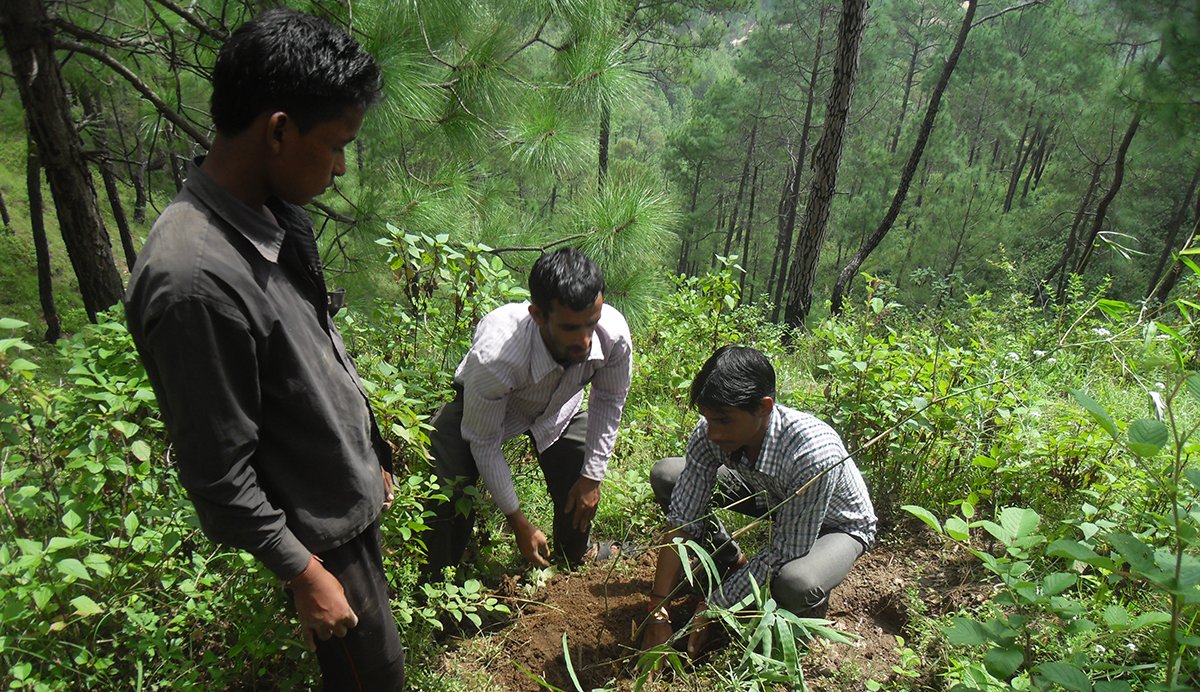Restoration of Oak Forests for Community Development in Uttarakhand, India
Uttarakhand, India
The livelihoods of communities living in the harsh, mountainous landscape of the Himalaya are under threat from the effects of changing climate. Loss of broad-leaved forests and their subsequent replacement by pine is seen by the community as a cause for increased vulnerability to threats such as floods, landslides and fires. Oak forests have been shown to improve water quality and biodiversity, and play an integral role in meeting the community’s needs. The project seeks to increase forest cover by planting a native species of Oak, Banj Oak, on parcels of community forest lands. Other project activities include soil and water conservation, fire prevention activities, cultivation of fodder grass for livestock and other activities to address improved livelihoods of the community.
Background of Project
The extent of forests under pine is increasing, at the cost of other species such as Oak. Among the many virtues of pine, it is also known to affect groundwater levels and is an aggressive species that spreads quickly. Its needles are not broken down easily or eaten, and this causes water runoff and makes the area prone to fires. Oaks, including Banj Oak, are immensely important species for rural livelihoods, groundwater and biodiversity and hence calls for an urgent need to increase the forest cover under Oak and other broad-leaved species in the Himalaya.
The Project
The project aims to restore broad-leaved Oak forests on open and degraded Van Panchayat lands, through a scalable and replicable model. In this project, 500 ha of land will be planted with Oak. The project is spread over 30 villages and 3 districts in the Kumaon region of Uttarakhand. Phase 2 of this project will spread to over 2000 HA of land.
The Benefits
Increased forest cover of oak trees leads to better water retention and improvement in the quality and quantity of groundwater and springs. Carbon is sequestered in the trees and in the soil. The local community benefits from employment creation and enhancement of technical skills during project implementation and monitoring. Cultivation of fodder grasses and other activities lead to improved incomes and reduced time and effort spent in grazing livestock.






